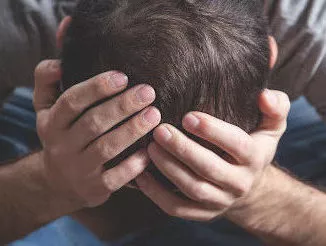Suing for Emotional Distress in Louisiana

After you’ve been hurt due to someone else’s negligence, you probably know you can be eligible for damages caused by your physical injuries and property damage. However, you might find yourself asking, “Can I sue them for emotional distress caused by my accident?”
In short, you can sue for emotional distress and mental trauma caused by another’s negligence. While emotional injuries are harder to quantify than physical ones (in many cases, they require some type of physical harm), the damages and impact on victims are very real.
By suing the party responsible for your emotional distress, you can recover damages associated with your emotional and mental injuries. In this blog, we’ll discuss the legal processes, complications, and ramifications of suing for emotional distress.
What Is Emotional Distress?
Under Louisiana law, emotional distress is a type of mental suffering or anguish that’s caused by another’s negligence or bad intent. Emotional distress is a type of damage that can be recovered through a civil lawsuit, which means you can sue the person responsible for your emotional trauma if you can provide the evidence to support your claim.
Most emotional distress claims require physical harm as well, but some recent cases have allowed victims to recover emotional distress damages without physical injury. Although rare, depending on your case, psychological trauma alone can be grounds for a claim.
What Do I Need to Do to Sue for Emotional Distress?
In order to back up your claim for emotional distress damages, you need to provide compelling evidence of your injuries. Following these steps will help you make the strongest case possible and recover the compensation you need:
- Document your distress: You should keep documentation of your physical injuries as well as your mental and emotional trauma. While copies of your medical and work records are important, you should also keep a daily journal of your mental state and worries in order to make a stronger case. The better you document your distress, the stronger your case will be.
- Discuss your case with an attorney: A dedicated lawyer from Gordon McKernan Injury Attorneys will review your documents and help you prepare for legal action against those responsible for your distress.
- File a lawsuit: We can help you file an emotional distress lawsuit if enough evidence is available. In this lawsuit, you (the victim) will be the plaintiff, and the other party the defendant.
- Pre-trial preparations: During the discovery phase of trial, we’ll exchange information with the other party and negotiate for a fair settlement. We have 679+ years of combined legal experience negotiating for our clients, and have won over $3 Billion in compensation.
- Trial: If a settlement is unable to be reached, we will argue your case in front of a judge and jury in order to win you fair compensation.
Undergoing a lawsuit to recover damages from your emotional distress is a long and complicated journey. Consulting a knowledgeable injury lawyer from Gordon McKernan Injury Attorneys is vital to give yourself the best chance of recovering your damages.
Types of Emotional Distress Claims
There are two main types of claims for emotional distress:

- Negligent infliction of emotional distress: When the defendant unintentionally caused emotional harm without regard for your safety, you can sue them for their negligence even if you weren’t physically harmed in the incident. Most jurisdictions will permit recovery of emotional distress damages if the victim was in the zone of danger.
- Intentional infliction of emotional distress: If a defendant recklessly or intentionally inflicts emotional trauma, the victim can sue for intentional emotional distress damages. Some types of persistent verbal abuse can be considered intentional infliction of emotional trauma.
Evidence for Emotional Distress
In any personal injury claim, evidence is a major factor in the compensation you’re able to recover. If you’re planning to sue for stress or mental anguish, you need proof that you suffered that distress. There are multiple kinds of evidence you can use:
- Physical injuries are easy to identify, and conditions like ulcers, brain damage, and headaches can indicate emotional distress
- Your emotional distress claim becomes more credible as you experience it for greater amounts of time
- A medical report from a doctor or psychologist can also demonstrate your emotional distress—so seek medical attention immediately
- A severe initial incident is more likely to be found emotionally distressing in court
- Witness testimonies can also lead credence to the emotional distress you’re experiencing.
Contact Gordon McKernan If You’ve Suffered Emotional Distress

If you’ve experienced mental or emotional trauma as a result of someone else’s negligence or intentional act, you need an advocate on your side to collect the compensation you need to heal. Gordon McKernan Injury Attorneys is a Louisiana law firm specializing in emotional distress cases, and we know what it takes to get you the compensation you deserve.
Give us a call today at 888.501.7888 for a free consultation about your injuries. We’ll get started on your case right away.

